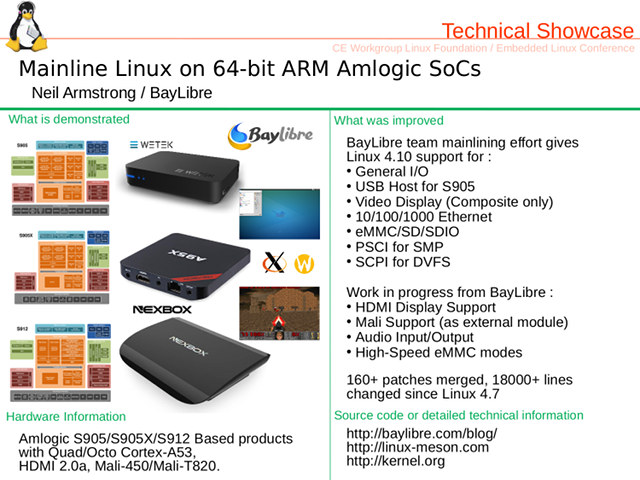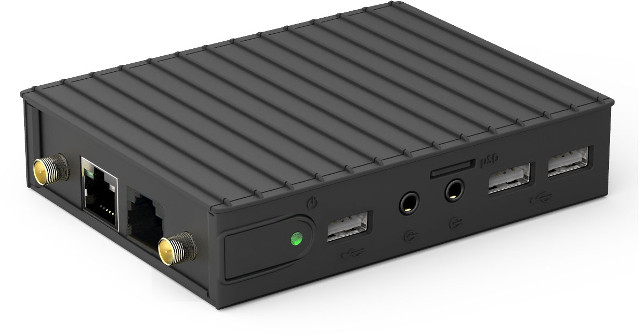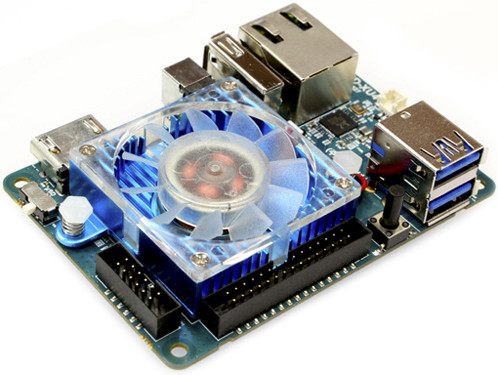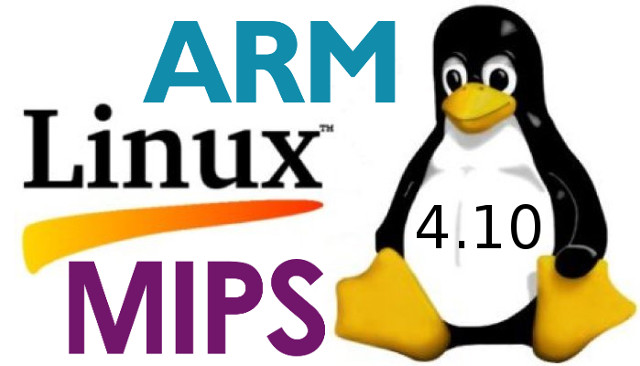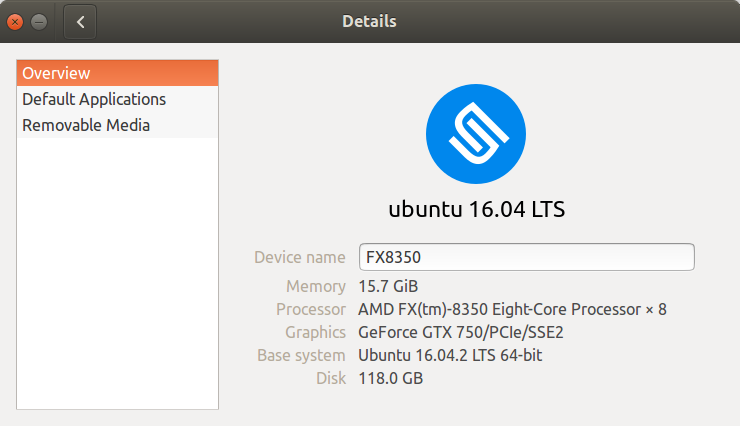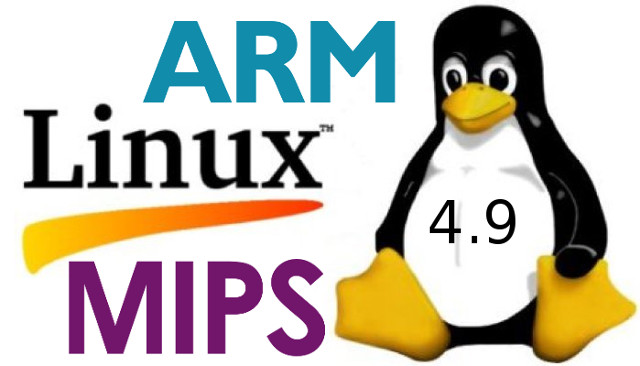While you can install Linux on most laptops by yourself, it’s not always easy to find a laptop pre-installed with Linux, especially for the cheaper models. So it’s encouraging to see products like Litebook, a laptop with Elementary OS based on Ubuntu, and powered by an Intel Celeron N3150 “Braswell” processor with 4GB RAM, a 512GB hard drive, and a 14.1″ Full HD display. Litebook laptop specifications: SoC – Intel Celeron N3150 quad core “Braswell” processor @ 1.60 / 2.08 GHz with Intel HD graphics System Memory – 4GB RAM (soldered) Storage – 512GB hard drive (upgradeable), micro SD slot, optional 32GB mSATA SSD Display – 14.1″ display with 1920×1080 resolution Video Output – HDMI 1.4 port Audio – 3.5mm audio jack, stereo speakers Connectivity – Gigabit Ethernet, 802.11 b/g/n WiFi and Bluetooth 4.0 USB – 2x USB 3.0 ports Camera – 720p front-facing camera Battery – Replaceable battery (capacity […]
Mainline Linux on 64-bit ARM Amlogic SoCs, and TV Boxes such as Wetek Hub / Player 2, NEXBOX A1 / A95X, etc…
We’ve already seen Neil Armstrong, part of BayLibre, worked on adding Amlogic SoC (S905/S905X/S912) to mainline Linux via our virtual schedule for the Embedded Linux Conference & OpenIoT Summit 2017. But at the time, although we could see some activity in Linux 4.10 including support for Nexbox A95X and Nexbox A1, they did provide that much details the work that had been done, but since then, ELC 2017 videos have been released, and BayLibre wrote a short post about 3D Graphics support in mainline Linux. We can see that I/Os, USB host, composite video output, Ethernet, eMMC/SDIO, and PSCI and SCPI features have already been added to Linux 4.10. but some important features have not yet including HDMI, Mali support, Audio, and high speed eMMC modes. HDMI is actually planned for Linux 4.12, which could be released in about 18 weeks if we keep the 10 weeks kernel release schedule […]
Compulab IOT-GATE-iMX7 is an NXP i.MX7 IoT Gateway for Industrial Applications
CompuLab has introduced IOT-GATE-iMX7 compact fanless IoT gateway and industrial controller built around the company’s CL-SOM-iMX7 system-on-module, and offering Ethernet, WiFi, Bluetooth, 3G and Zigbee connectivity.Compulab IOT-GATE-iMX7 gateway specifications: SoC – NXP i.MX 7 dual ARM Cortex-A7 processor @ up to 1GHz with ARM Cortex-M4 core @ 200Mhz, 2D graphics engine System Memory – Up to 2GB DDR3L-1066 Storage – Up to 32GB on-board eMMC + micro-SD socket Connectivity Dual Gigabit Ethernet Dual band WiFi 802.11 a/b/g/n Bluetooth 4.1 BLE Optional 3G cellular module via mini PCie socket Optional ZigBee NXP JN5168 module Display – DVI up to 1920×1080 using a HDMI connector Audio – 3.5mm jacks for stereo line out, stereo line in USB – 4x USB2.0 host ports, type-A connectors Serial – 1x RS485 / RS422 port, RJ11 connector; 1x RS232 port, ultra-mini serial connector; 1x serial console via UART-to-USB bridge, micro-USB connector Expansion mini-PCIe socket, full-size embedded […]
LEDE 17.01.0 “Reboot” Router Operating System Released
LEDE (Linux Embedded Development Environment) is a fork of OpenWrt after some disagreements between developers, and while there are talks about merging OpenWrt and LEDE development, this is not done yet, and LEDE 17.01 has been released a few days ago. Some of notable LEDE 17.01 changes include: Linux kernel updated to version 4.4.50 (from 3.18 in Chaos Calmer) Update to dnsmasq 2.76, busybox 1.25.1, mbedtls 2.4.0, openssl 1.0.2k Improved Security Features Improved Networking Support Added new targets: apm821xx (AppliedMicro APM821xx) arc770 (Synopsys DesignWare ARC 770D) archs38 (Synopsys DesignWare ARC HS38) armvirt (QEMU ARM Virtual Machine) ipq806x (Qualcomm Atheros IPQ806X) layerscape (NXP Layerscape) zynq (Xilinx Zynq 7000 SoCs) Reorganized x86 target – Drop dedicated Xen DomU target, merged with x86/generic * Enable AES-NI support Build system improvements Image Builder / SDK – Rework library bundling to allow for better portability between different Linux distributions, added support for building kernel modules […]
ODROID-XU4 Development Board Price Drops to $59, Now Supports Linux 4.9 LTS
ODROID-XU4 development board powered by Samsung Exynos 5422 octa-core processor launched in summer 2015, but even after two years, it’s one of the fastest, if not the fastest, low cost development board on the market. It is also equipped with Gigabit Ethernet and USB 3.0 ports, but so far at $74, it was quite much expensive than slower peers. Hardkernel has now decided to lower the price to $59 plus shipping, which is really a good deal in terms of price/performance, and you’ll also benefit from close to two years development, as the board now supports Linux 4.9 with updates promised until early 2019. Here’s a reminder of the technical specifications: SoC – Samsung Exynos 5422 quad core ARM Cortex-A15 @ 2.0GHz + quad core ARM Cortex-A7 @ 1.4GHz with Mali-T628 MP6 GPU supporting OpenGL ES 3.0 / 2.0 / 1.1 and OpenCL 1.1 Full profile System Memory – 2GB […]
Linux 4.10 Release – Main Changes, ARM & MIPS Architectures
Linus Torvalds has just released Linux 4.10: So there it is, the final 4.10 release. It’s been quiet since rc8, but we did end up fixing several small issues, so the extra week was all good. On the whole, 4.10 didn’t end up as small as it initially looked. After the huge release that was 4.9, I expected things to be pretty quiet, but it ended up very much a fairly average release by modern kernel standards. So we have about 13,000 commits (not counting merges – that would be another 1200+ commits if you count those). The work is all over, obviously – the shortlog below is just the changes in the last week, since rc8. Go out and verify that it’s all good, and I’ll obviously start pulling stuff for 4.11 on Monday. Linus Linux 4.9 added Greybus staging support, improved security thanks to virtually mapped kernel stacks, […]
How to Upgrade to Linux 4.8 in Ubuntu 16.04.2
I had read from several news sources that Ubuntu 16.04.2 would come with Linux 4.8. My system was upgraded from Ubuntu 16.04.1 to Ubuntu 16.04.2 this week-end, but I still had Linux 4.4.
|
1 2 3 4 5 6 7 |
cat /etc/lsb-release DISTRIB_ID=Ubuntu DISTRIB_RELEASE=16.04 DISTRIB_CODENAME=xenial DISTRIB_DESCRIPTION="Ubuntu 16.04.2 LTS" uname -a Linux FX8350 4.4.0-62-generic #83-Ubuntu SMP Wed Jan 18 14:10:15 UTC 2017 x86_64 x86_64 x86_64 GNU/Linux |
So I wondered why that was, and eventually found my answer on Reddit thanks to EndofLineLF user: If it isn’t a new 16.04.2 installation then you won’t have newer kernel. If your install started as 16.04 or 16.04.1 then with all updates installed “lsb_release” will display 16.04.2 as version because that’s what you have. The switch to HWE (Hardware Enablement Stack) was never automatic. So if you want newer kernel you have to install it manually. https://wiki.ubuntu.com/Kernel/RollingLTSEnablementStack#Packages-1 sudo apt-get install –install-recommends xserver-xorg-hwe-16.04 This will also install the new HWE kernel because it is recommended for that package. Upgrading to the new kernel is completely optional, and Linux 4.4 will still get security updates, but I did […]
Linux 4.9 Release – Main Changes, ARM and MIPS Architectures
Linus Torvalds released Linux 4.9 on Sunday: So Linux 4.9 is out, and the merge window for 4.10 is thus open. With the extra week for 4.9, the timing for the merge window is obviously a bit awkward, and it technically closes in two weeks on Christmas Day. But that is a pure technicality, because I will certainly stop pulling on the 23rd at the latest, and if I get roped into Xmas food prep, even that date might be questionable. I could extend the merge window rather than cut it short, but I’m not going to. I suspect we all want a nice calm winter break, so if your stuff isn’t ready to be merged early, the solution is to just not merge it yet at all, and wait for 4.11. Just so you all know (I already bcc’d the main merge window suspects in a separate mailing last […]



